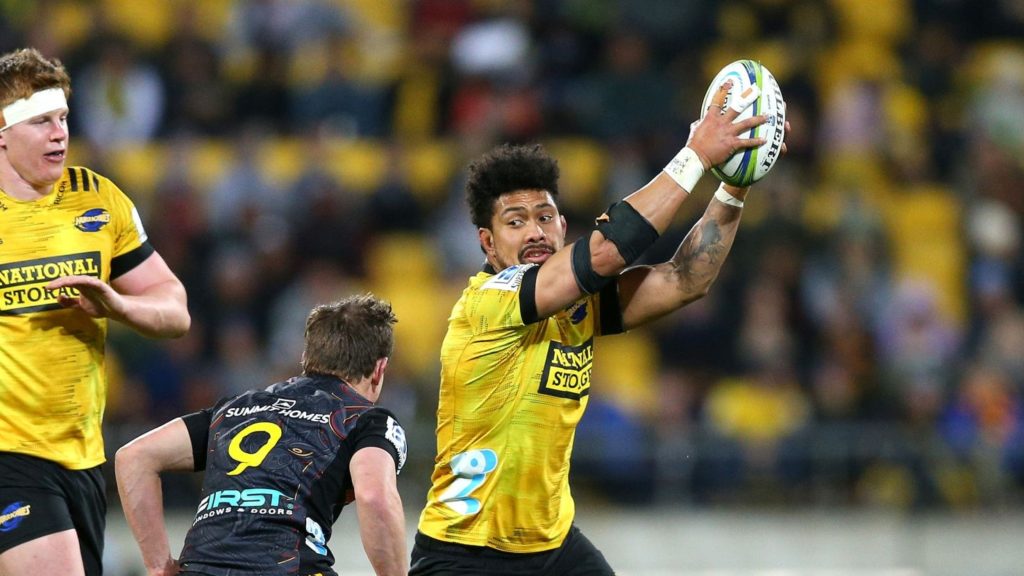Ardie Savea’s angry reaction to a news story highlights a trend of player isolation, writes SIMNIKIWE XABANISA in the latest SA Rugby magazine.
ALSO READ: What’s in our latest issue?
The media used Savea’s statement as a barometer of whether he’s the right man to lead their national team, what with the controversy the issue has created
Ardie Savea’s recent spat with the New Zealand media has highlighted the growing disdain between sportspeople and the press.
The Hurricanes and All Blacks flanker took exception to the media digging into six Highlanders’ players being stood down for the upset victory against the Crusaders for breaking team protocols by attending a party at the home of utility back Josh Ioane.
Between the fact that Ioane had been suspended for one game for a drinking-related offence before, and the neighbours painting him as a bit of a nuisance with the frequent parties they claimed he was hosting, the narrative of a repeat offender was built.
Savea went on social media, decreeing that the reporting should have stopped after the Highlanders made the announcement and claiming the players had been treated like criminals, before demanding that the media “BE BETTER”.
The guys in my rugby WhatsApp group described Savea’s utterances – essentially his attempt as a senior All Black to protect younger players – as true leadership, while the New Zealand media interpreted it as a player telling them how to do their job.
The background to all of this is that Savea, who is described as having a tough time hiding his dislike for the media at the best of times, has suddenly become a candidate for the All Blacks captaincy, thanks to incumbent Sam Cane’s long-term injury.
While the Highlanders incident gave him an opportunity to have what he feels is a justified pop at the media, they used his statement as a barometer of whether he’s the right man to lead their national team, what with the controversy the issue has created.
As an outsider, both sides seem to have a point.
If I were Savea, what I would have highlighted was the difference in tone between Ioane’s story and, say, Jordie Barrett’s, when he and a friend once walked into a random house in Dunedin at 5am and proceeded to eat their McDonald’s before the women who lived there called the police.
Barrett was also evicted from the MCG stadium for ‘behavioural issues’ while watching his countrymen take on the Aussies a couple of years later, but the interesting thing in both his incidents is the insistence that he wasn’t drunk (by himself and a fellow Kiwi’s social media account of the Melbourne eviction).
One can’t help but notice that from their two incidents apiece Ioane is saddled with a reputation for drink-related troublemaking while Barrett either innocently walked into a stranger’s flat or was deliberately stitched up by the Aussies’ nanny state police.
That said, there’s nothing wrong with Savea saying what he really thinks (aren’t we always imploring sportsmen to do that?), but it probably will affect his captaincy chances because a decent relationship with the media is usually one of the prerequisites for the job.
If he doesn’t buy that, he can look at the Robert du Preez example. For all his using the Sharks as his family business by playing all three of his sons and his two-minute press conferences, the ever-brooding Du Preez was a good enough coach to win a Currie Cup against a heavily favoured Western Province.
But calling rugby hacks cockroaches was ultimately what encouraged the Sharks to part ways with him.
With the advent of so many different social media platforms from which athletes can build their narrative, there seems to be less of a need to hear from traditional media any more (the athletes because they’re tired of having people with 40% body fat wax lyrical about conditioning, and the public because they can get the news from the horse’s mouth).
But in among all that narrative, will the athletes be relied upon to tell the truth the media is obligated to try find?





